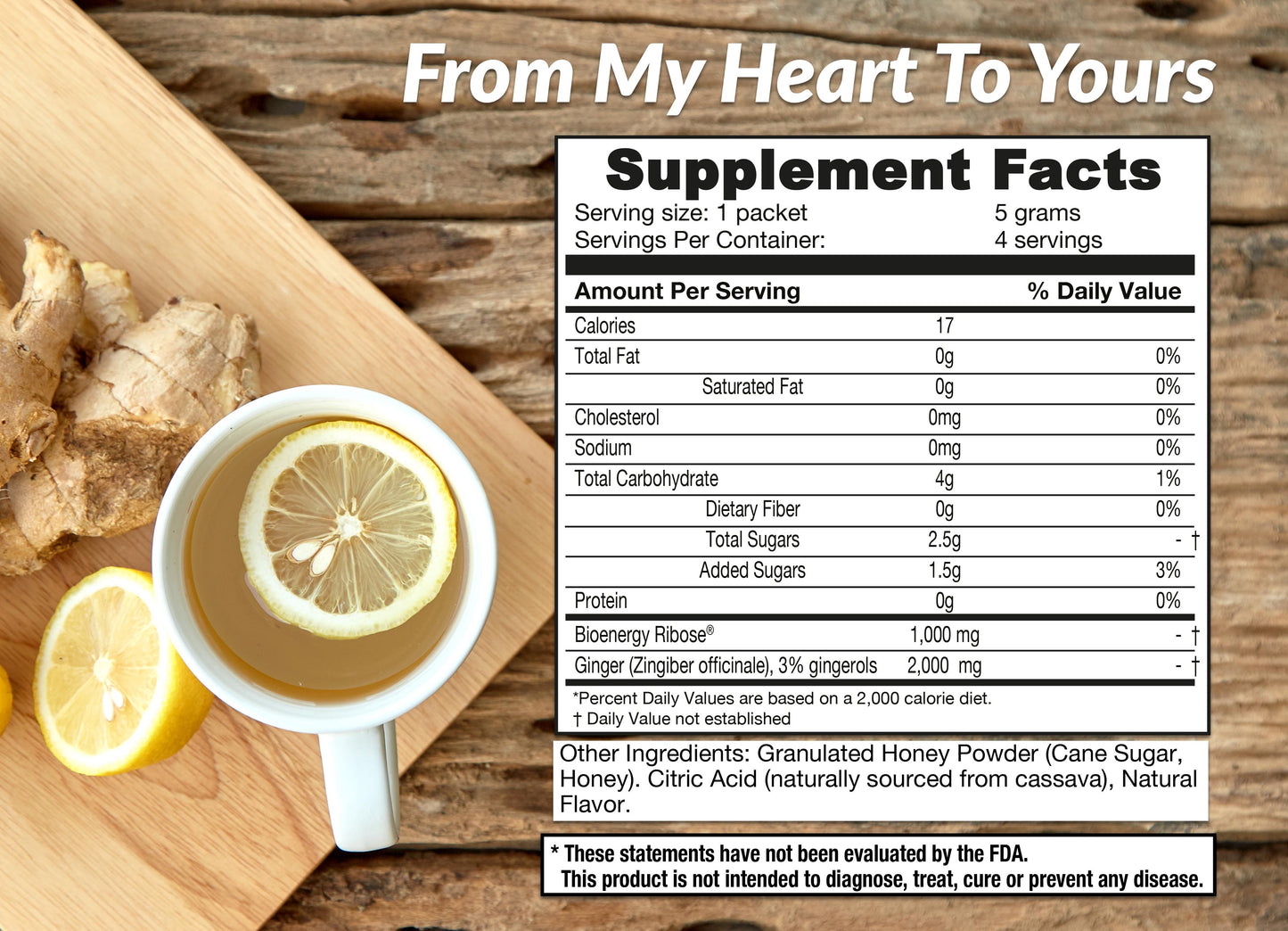Share
9 Natural Ways to Stop Morning Sickness: Safe Pregnancy Remedies
Pregnancy, especially if it's your first, can be a joyful and wondrous time. However, it isn't without its share of discomfort. One of its most common effects on a woman's body is morning sickness.
Despite the name, morning sickness can occur at different parts of the day—though mornings are usually the time when most women experience it.
Good news: There are safe, natural ways to minimize and cope with morning sickness. In this article, we'll share 9 proven tricks to help you feel better during your first trimester.
Quick Navigation
What Is Morning Sickness?
Morning sickness is a term that describes the vomiting and nausea that many women experience during the first trimester of pregnancy.
It isn't a specific condition but a group of symptoms that can be caused by different factors.
📊 How Common Is It?
About 70-80% of pregnant women experience some form of morning sickness during their first trimester. You're definitely not alone!
What Causes Morning Sickness?
The primary cause of morning sickness is unknown, but it may be related to:
- Rising pregnancy hormones (especially estrogen and progesterone)
- Drop in blood sugar levels
- Increased sensitivity to smells
- Stress and fatigue
- Certain foods or odors that trigger nausea
Pregnancy hormones, especially estrogen and progesterone, are thought to play a major role in morning sickness. They may be responsible for triggering nausea and vomiting during pregnancy.
Who Is Prone To Morning Sickness?
You're more likely to experience morning sickness if you:
- Are in your first trimester (weeks 1-12)
- Have experienced it in a previous pregnancy
- Are pregnant with multiples (twins, triplets)
- Have a history of motion sickness or migraines
- Have a sensitive stomach in general
Timeline: Nausea typically begins around 6 weeks of pregnancy, peaks between 8-11 weeks, and usually dissipates near the end of the first trimester. However, that isn't the case for everyone—some women experience it longer.
About Hyperemesis Gravidarum
Hyperemesis gravidarum is a more severe form of morning sickness that can last longer and be much more debilitating. It can lead to:
- Severe, persistent vomiting
- Weight loss (losing more than 5% of pre-pregnancy weight)
- Dehydration
- Malnutrition
- Electrolyte imbalances
⚠️ When to See Your Doctor
Contact your healthcare provider immediately if you:
- Can't keep any food or liquids down for 24 hours
- Are losing weight
- Feel dizzy or faint when standing
- Have dark-colored urine or urinate very little
- Have a rapid heartbeat
If symptoms continue to be severe, you may require hospital treatment for IV fluids and anti-nausea medication.
Try These 9 Natural Ways To Reduce Morning Sickness
Fortunately, there are things mothers-to-be can try to reduce their discomfort. Here are 9 safe, effective tips:
1. Eat Small, Frequent Meals
Why it works: Eating small meals every few hours helps keep your blood sugar levels stable, which can prevent nausea and vomiting.
What to do:
- Eat 5-6 small meals instead of 3 large ones
- Have a healthy breakfast to start your day
- Keep snacks nearby for when hunger strikes
- Never let your stomach get completely empty
Pro tip: Keep crackers by your bedside and eat a few before getting out of bed in the morning.
2. Stay Hydrated
Why it works: Dehydration is a common cause of nausea and vomiting. Staying hydrated helps your body function better and can reduce symptoms.
What to do:
- Drink plenty of water throughout the day
- Sip slowly rather than gulping
- Try cold or room-temperature beverages (hot drinks can trigger nausea)
- Add lemon or ginger to water for extra nausea relief
Struggling to keep fluids down? Anti-na SIPS combines ginger for nausea relief with hydration support—making it easier to get the fluids you need when plain water sounds terrible.
3. Eat Bland Foods
Why it works: Bland foods are easier to digest and less likely to trigger nausea.
Best bland foods for morning sickness:
- Crackers (especially saltines)
- Toast or dry cereal
- Bananas
- Applesauce
- Plain rice or pasta
- Baked potato
Avoid: Spicy foods and greasy meats—they may trigger your gag reflex.
4. Get Plenty of Rest
Why it works: Fatigue can worsen nausea. Getting adequate sleep helps your body cope with pregnancy changes.
What to do:
- Aim for 8-9 hours of sleep per night
- Take short naps during the day if needed
- Rest on your left side to prevent heartburn
- Use a pregnancy pillow for comfort
5. Get Fresh Air
Why it works: Fresh air can help clear your head, calm you down, and relieve nausea.
What to do:
- Go outside for a short walk
- Open windows to ventilate stuffy rooms
- Try to go out when it's cool and cloudy (sun can trigger nausea for some)
- Sit outside for a few minutes when feeling queasy
6. Avoid Triggers
Why it works: Identifying and avoiding your specific triggers can significantly reduce nausea episodes.
Common triggers to avoid:
- ❌ Strong odors (perfume, cologne, cleaning products)
- ❌ Cigarette smoke
- ❌ Paint fumes
- ❌ Air fresheners
- ❌ Certain foods (see below)
7. Keep Yourself Comfortable
Why it works: Physical discomfort can worsen nausea. Staying comfortable helps you feel better overall.
What to do:
- Wear loose, comfortable clothing that doesn't press on your stomach
- Choose breathable fabrics
- Avoid tight waistbands
- Keep your environment cool (overheating worsens nausea)
- Lie on your left side with a pillow under your head when resting
8. Try Acupressure
Why it works: Applying pressure to specific points on your body can help relieve nausea.
What to do:
- Press the P6 point on your inner wrist (about 3 finger-widths below your palm)
- Hold for 2-3 minutes on each wrist
- Consider acupressure wristbands designed for morning sickness
9. Try Ginger (The Natural Nausea Fighter)
Why it works: Ginger is rich in antioxidants and anti-inflammatory properties that can help alleviate nausea. It can even relieve motion sickness!
How ginger helps with morning sickness:
- ✓ Blocks nausea receptors in the gut
- ✓ Speeds up gastric emptying (helps food move through)
- ✓ Reduces inflammation in the digestive tract
- ✓ Calms the nervous system
- ✓ Safe for pregnancy when used appropriately
✓ The Convenient Ginger Solution
A convenient way to consume this handy nausea-fighting root is by taking Anti-na supplements. Unlike other anti-nausea supplements, Anti-na delivers a fast, natural, and effective solution to nausea and vomiting. It also increases energy levels and boosts your body's production of vital nutrients.
Because of its strong flavor, ginger isn't normally consumed on its own—but Anti-na makes ingesting it more pleasant and convenient by offering lemon and ginger flavor options.
Why pregnant women choose Anti-na:
- ✓ Fast-acting relief: Works in 15-20 minutes
- ✓ No drowsiness: Unlike prescription anti-nausea meds
- ✓ Natural ingredients: Real ginger, not artificial flavoring
- ✓ Energy support: Helps combat pregnancy fatigue
- ✓ Easy to take: No pills to choke down when you're nauseous
- ✓ Portable: Take anywhere—work, car, purse
Anti-na is an excellent alternative to other products because it's affordable and easy to use. You can take one or two chews any time of day and it will work quickly without any side effects like drowsiness, dizziness, or headaches.
Foods That Make Morning Sickness Worse
Particular foods can trigger morning sickness and make it worse. Here are some things you should avoid:
1. Fatty and Greasy Food
Why to avoid: Greasy food can be challenging to digest and can make you nauseous.
Examples: Hamburgers, french fries, fried chicken, pizza, donuts
If you're craving it: Try to eat them in small amounts and not too often.
2. Spicy Food
Why to avoid: Eating spicy food during your pregnancy can have unpleasant side effects and worsen nausea.
Examples: Curry, chili, hot sauce, spicy Mexican food
The worst combo: Combining spicy food with fatty food can make you feel even worse.
3. Odorous Food
Why to avoid: Some pregnant women experience a heightened sense of smell during pregnancy, making odorous foods unappealing and nausea-inducing.
Examples: Fish, garlic, onions, strong cheeses, eggs
What to do: Ask someone else to cook these foods, or avoid them entirely during your first trimester.
What Actually Works: Morning Sickness Remedies Compared
| Remedy | Effectiveness | Pros | Cons |
|---|---|---|---|
| Crackers | ⚠️ Mild relief | Easy, cheap, accessible | Only helps mild nausea |
| Ginger ale | ❌ Minimal | Tastes good | Usually no real ginger, high sugar |
| Prescription meds | ✓ Very effective | Strong relief | Drowsiness, side effects, expensive |
| Acupressure bands | ⚠️ Moderate | No side effects, reusable | Doesn't work for everyone |
| Ginger supplements (Anti-na) | ✓ Very effective | Fast relief, no drowsiness, energy boost, safe for pregnancy | Requires purchase |
When Morning Sickness Becomes Serious
While morning sickness is normal and usually not dangerous, there are times when you should seek medical attention:
🚨 Call Your Doctor If:
- You can't keep any food or liquids down for 24+ hours
- You're losing weight (more than 5% of pre-pregnancy weight)
- You feel dizzy or faint frequently
- You have dark urine or urinate very little
- Your heart is racing
- You're vomiting blood
- You have severe abdominal pain
These could be signs of hyperemesis gravidarum, which requires medical treatment.
The Takeaway: You Can Feel Better
Pregnancy is an amazing experience. After all, you'll have new life to welcome at the end of your term! While you're waiting, however, the first few months can be especially draining and nauseating.
But you can manage and minimize the discomfort. With these simple tricks, pregnancy can be more pleasant and less taxing.
✓ Quick Recap: Your Morning Sickness Action Plan
- Eat small, frequent meals
- Stay hydrated (try ginger-infused water or Anti-na SIPS)
- Choose bland foods
- Get plenty of rest
- Get fresh air daily
- Avoid your specific triggers
- Wear comfortable clothing
- Try acupressure
- Use ginger supplements for fast, natural relief
If you're experiencing extraordinarily severe nausea and vomiting, it may be a good idea to get checked for hyperemesis gravidarum to ensure your health and the health of your little one.
In most cases, these 9 doable tricks work—so don't be afraid to give them a try.
Ready for Natural Morning Sickness Relief?Try Anti-na SIPS → Safe, Fast, Effective
Real ginger. No drowsiness. Energy support. Perfect for pregnancy.
Life, Uninterrupted™
Because growing a tiny human is hard enough. You deserve relief that actually works.
Source
Healthline - Hyperemesis Gravidarum: Causes, Symptoms, and Treatments
Disclaimer: This article is for informational purposes only and is not medical advice. Always consult your healthcare provider before starting any new supplement during pregnancy. Every pregnancy is unique, and your medical team should approve all remedies based on your specific situation.
Anti-na | SIPS: Nausea Relief + Energy Support
Share







- Choosing a selection results in a full page refresh.
- Opens in a new window.



